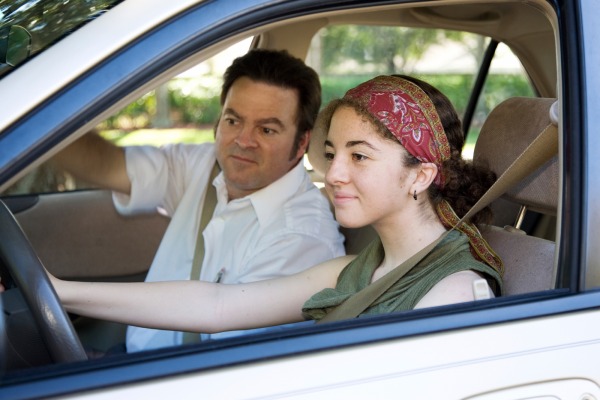
Getting a driver license is a rite of passage in our society, a clear signal that you are moving toward adulthood and independence. How should parents handle this chapter of their teenager's coming of age?
In general, it is easier and safer to let a professional teach your adolescent how to drive than to give the lessons yourself. Because teenagers associate driving with maturity, the slightest criticism from a parent is likely to send them into a funk. Because parents associate driving with letting go in a very concrete way, and with the possibility of accidents and serious injury, they are likely to overreact to the slightest mistake. Many schools have driver's education programs; if your adolescent's school doesn't, look into a driver's training school.
Before the adolescent gets his license, you should come to an agreement about when, how often and for what purposes he will be allowed the keys to the car. (Here is good advice on creating a parent-teen driving contract.) There are no set standards for this. What you decide depends on your community (and the availability of public transportation), your family's lifestyle and leisure interests and your teenager's activities.
Let's suppose your daughter has a reasonable amount of experience driving with you and by herself and has shown herself responsible at the wheel and in other ways. You might agree that she will have use of the car one weekend night, Saturday afternoons to drive to soccer practice and on Sundays when the youth club meets, assuming you don't need the car at these times. In exchange, you should expect the new driver to share some of the responsibilities that have always been yours, such as running errands and picking up a younger sibling. There may be exceptions to these rules, but if you have set up guidelines in advance, you are much less likely to be bombarded with requests and she is less likely to feel you are depriving her of the car unfairly.
It is also important to have a serious talk about safe driving. Automobile accidents are the leading cause of death among teenagers who live in the United States and similarly developed countries, where adolescence is generally a healthy time. Yet many parents believe that their role in the adolescent's driving career ends as soon as he has received his driver license. In fact, this is precisely the time when your supervision is crucial — new teen drivers have the highest risk of crashing of any group. The majority of teen crashes, including fatal ones, are not due to alcohol or drugs, as many people believe. They are due to speeding, reckless driving and lapses of attention. Most parents discuss the dangers of drinking and driving with their new driver, but fail to discuss other equally important factors:
You and the adolescent should also discuss who will pay for gas, insurance, parking tickets and other car expenses. Again, depending on your situation and the teenager's finances and activities, you might decide to carry all of the cost during high school or require her to contribute to some of these expenses. Whatever you decide, the adolescent should know that insurance premiums increase sharply when a young driver is added to the policy. If the adolescent gets a ticket for a moving violation, the cost of insurance will rise even more. One way to bring home the importance of safe driving is to point out that if the teenager gets a speeding ticket or has an accident, you may not be able to afford to insure him.
Owning a car of their own is the stuff of teenage dreams. But these fantasies rarely include the cost of insurance, repairs and maintenance. If the teenager has factored these costs into her dreams, can afford a car and is a safe driver, you might consider allowing her to own one. If the teenager actually needs a car (it would enable her to enroll in an enrichment program at a nearby college, to attend daily ballet classes without missing school, or some other good reason), you might consider helping with the costs. But beware of the teenager who says she needs a car to get to work, when all of her earnings will go toward the car.
Also beware of being the parent who spent his adolescence dreaming of a car and now wants to live vicariously through his son by giving him what he couldn't afford. A car won't make a responsible adolescent irresponsible. But for one who isn't very mature and who hasn't yet acquired a sense of personal responsibility and self-regulation, a car can be an invitation to trouble.
Laurence Steinberg is the Distinguished University Professor of Psychology at Temple University and the author of the book You and Your Adolescent: The Essential Guide for Ages 10 to 25. Article used by permission.